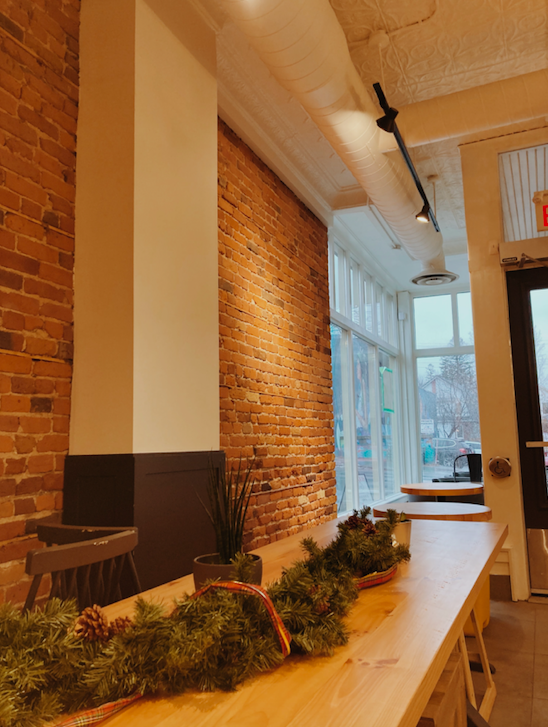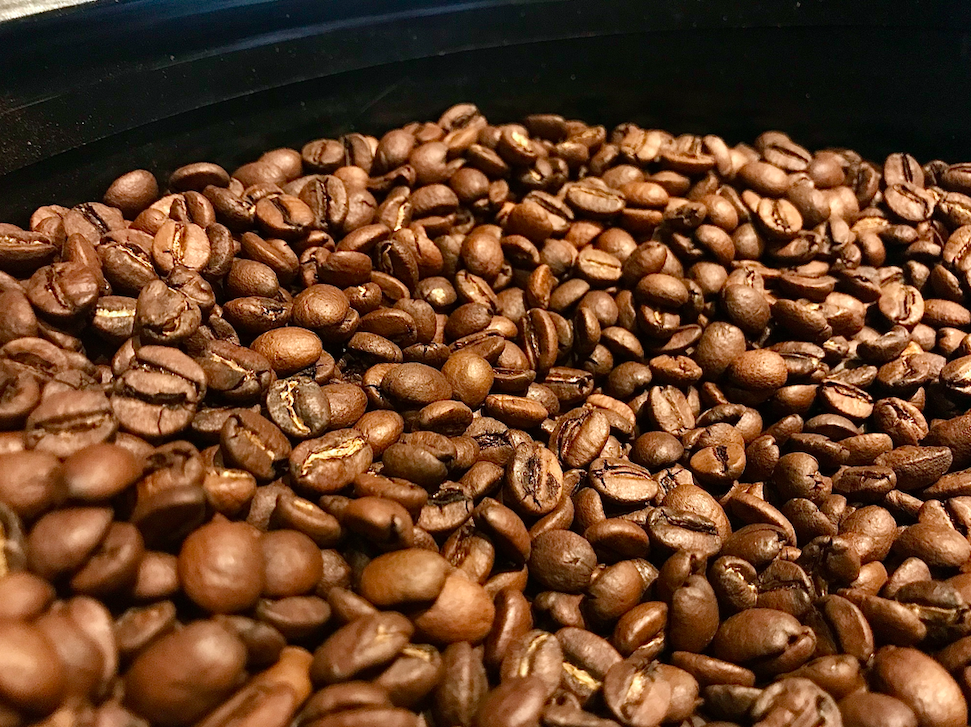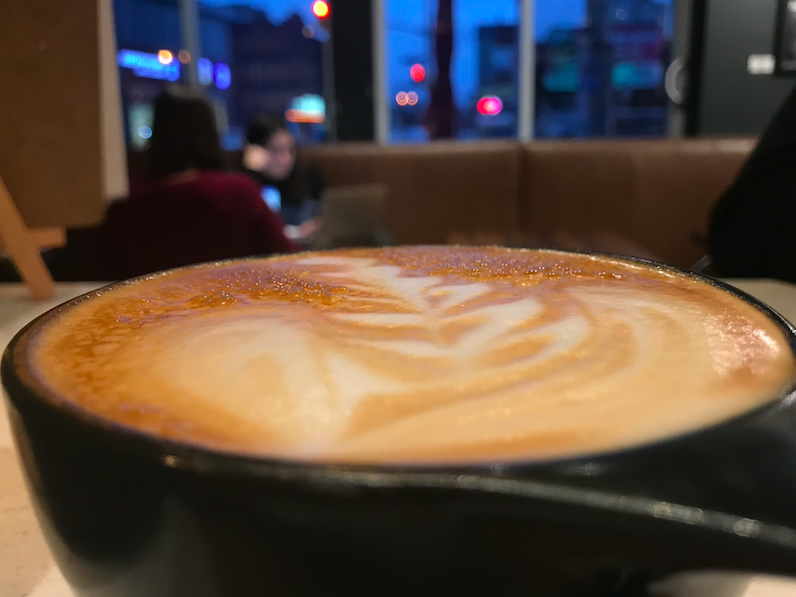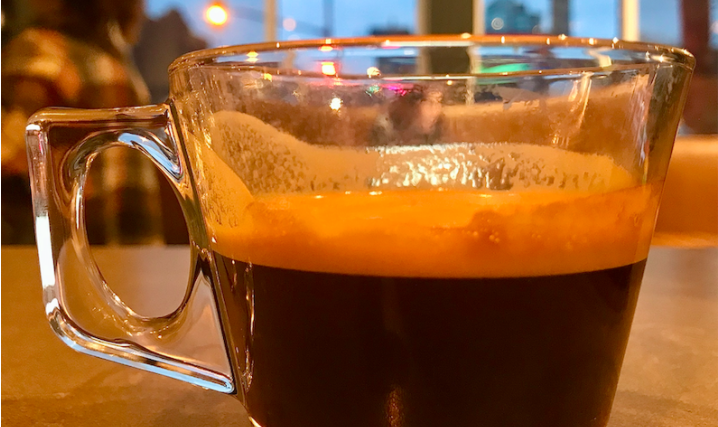The only part-time jobs I’ve ever had involved serving customers. Three of them have been in coffee shops and I’ve met some of Ottawa’s worst and best people through this work.
There’s something about the smell of coffee grounds and the texture of dark wood tables and worn, faded hardwood floors. The sounds of coffee grinders, quiet conversation, dark roast dripping through the filter, trickling espresso shots and soft acoustic music settle me, warm and comfortable, into my daily routine.
When COVID-19 hit and we closed our doors, I found myself wondering about my regulars. In a coffee shop, I rarely learn the names of the people who frequently filter through the doors. Instead, I identify them by their laptop cases, the covers of the books they’re reading that week, their drink orders. I haven’t seen the man who gets an americano — black — and a ginger cookie every Saturday around 10 a.m., and every second Friday since April. I hope he’s doing well.
Since we re-opened mid-summer, my job has changed. We do take-out orders only, and I serve people from behind masks and Plexiglas. I choose music for myself, since there aren’t any customers inside to hear it. I’ve identified regular customers by the frames of their glasses and the print of their face masks rather than by their favourite seat or travel mug.

I crave that connection to strangers. It’s something I’ve been grieving with the distance that this pandemic has enforced. And it goes without saying that we’ve all been struggling to feel a sense of community. People are angry, irritated, frustrated and exhausted. I had customers every single shift who refused to put their mask on in the café. I had customers who were angry that we don’t have seating available, who were mad that they can’t use their own mugs or that they have to butter their own bagel, or who were impatient with the delay in service that was just routine with limited staff in the café.
I choose not to focus on those people. Instead of thinking about the five grouches on my most recent shift who were impatient, irritable, rude, or angry with me, I focused on the little details of my day that connected me to my customers.
When people wait for me to finish their beverage, they almost always turn to their phones. I have no doubt that the majority are being tormented by worrying news alerts and exhausting social media posts. Instead of sitting in silence for this brief moment in our interaction, I started asking people how their days were going.
It turned out that 80 per cent of people want to talk. It’s just that nobody asked.
In early September, a woman told me that she was a teacher at a nearby public school. She said she was exhausted from wearing goggles and a face mask under a face shield and telling her students to stay away from each other, keep their masks on and stop spitting in each other’s faces all day.

While I prepared her extra-sweet, fat-free London fog, she sat on the floor. I peeked over the counter and asked if she was OK. She started to cry, put her head in her hands, laughed somewhat hysterically and said: “These kids are going to give me COVID.”
I gave her a discount and put her drink in a cup that was a size larger than usual. I told her I hoped her week improved, and that I’m sure her students’ families appreciated all her hard work.
“They’re good kids,” she said. “This is just really hard.”
She thanked me for asking how her day was and for her London fog. For the rest of the month, I thought of her with every headline or post I read about the schools reopening and adjusting to health measures.
Recently, before things locked down, a very pregnant woman came in towards the end of the day. She walked quickly and purposefully, with her husband trailing behind. They had matching wedding bands and both looked exhausted. She strode right up to me, smiled, took a deep breath.
“I would like six of your double chocolate cookies, please.”
“I’m so sorry, but I’ve just run out of those —” I started.
“No!” she cried.
Her husband approached and asked if I was sure I didn’t have any double chocolate cookies. He said it was really important that they get some.
Apologetically, I explained that they were very popular that day and asked if they’d like one of the other kinds instead.
She sat down on a nearby chair and started shaking her head.
“They are all I’ve been craving for the last two months,” she said. “I’ve been looking forward to them all week.”
Her husband asked me, hopefully, if they could find anything similar somewhere else. I made a few suggestions, and they left, feeling defeated.As they were leaving, I recognized him as the man who frequently came in on Fridays after work and bought the double chocolate cookies in bulk.
The next Friday I worked, I waited for him. When he came in, seeming desperate, I had seven cookies packaged and waiting for him. He thanked me and said all his wife had been able to think about since their last visit to the café were the cookies. He said she was due in two weeks. I hope she still enjoys the cookies after the baby comes because I’m looking forward to meeting their new little one.

A few days ago, an elderly man came into the café. I wished that I could approach him to lend an arm, because he was struggling to maintain his balance. The café was empty, and while he waited for his double long espresso to pour, I sanitized and pulled a seat around for him to rest.
As we chatted, he asked if we had met before. We laughed about how difficult it is to meet and recognize people when we can’t see their whole face through the masks. He chuckled, but then approached me again and said that my eyes were familiar. I wondered how we might know each other, and we went through the regular chat about where I grew up, where I’d worked and where he was from in attempts to fill in the blanks.
He eventually shook his head and looked away, and said he’d think of it soon.
I finished readying his espresso and packed up his cookies. He thanked me — wholeheartedly, kindly — looking at me warmly.
Then, suddenly, I saw his eyes light up, eyebrows rise, and smile lines deepen. He took off his knitted toque and clasped it to his chest in realization.
“You have my mother’s eyes.”
I was temporarily speechless. How do you respond to that?
“I haven’t seen those eyes in over 50 years,” he said. “Thank you.”
As I stumbled to respond — “No, thank you! I’m so glad” — he turned with a new bounce in his step.
Balancing his espresso and cookies, he tipped his winter hat to me and went out the door, humming something under his breath.
The song was familiar to me and I hummed it myself for the rest of the day, eventually recognizing it as “When Irish Eyes Are Smiling.”
I was drawn to journalism because of the intimacy and the connection to people.
As a writer, I have never felt anything more empowering and humbling than strangers trusting me with their voices, their stories, their lives. It’s what inspired me to start journalism school, and it’s what keeps me at the coffee shop.
We’ve lost our holiday gatherings, our weekly get-togethers with friends, and our comfortable, daily routines. But with every conversation, every story, every instance of shared smiling eye contact, I’m reminded that we haven’t lost each other.
As long as we continue to find community and humanity where we can, I don’t believe we ever will.




